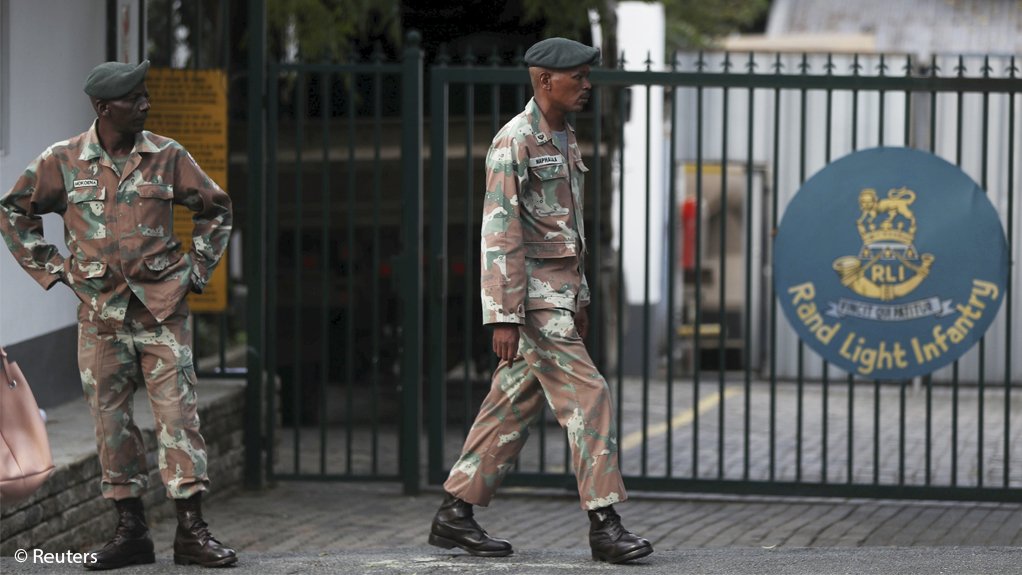The outbreak of coronavirus in every continent (except Antarctica) has resulted in a war-time mobilisation of national assets and resources, as well as a shift in production by some companies from their core products to the manufacture of products that can support the fight against the coronavirus.
World War Two saw similar shifts in production by various companies to items that could instead support the war effort. Some companies were drafted to pump out as many bullets, aircraft, bombs, small-arms and uniforms as they could. Currently, we see the same occurrence increasingly playing out across the world, as leaders call on anyone willing and able to help wherever they can.
Many regions, South Africa included, have declared various levels of ‘states of disaster and emergency’, thereby giving governments greater power to restrict people’s movements and limit some rights. Some regions have undergone complete lockdown, the first being Wuhan in China, where the virus originated. Wuhan underwent such severe movement restrictions that its citizens even mobilised and built barriers between infected areas and uninfected areas. China eventually imposed strict movement restrictions on citizens from Wuhan and other regions with severe infections.
The country also introduced and used a movement monitoring solution, making use of a barcode on cellular phones that, when scanned by checkpoint officers, provided visibility of that individual’s travel patterns and flagged visits to areas with high infection. Thereby the authorities were enabled to make informed decisions about whether or not to allow a person to proceed or stay put.
World leaders are in uncharted territory, with many facing once-in-a-lifetime economic, social and health obstacles that will define their leadership and ink their actions in history books for all eternity.
The situation is severe enough to warrant the worst-affected hospitals to ditch their conventional triage protocols, putting only the most severe cases into intensive care units, while other severely ill patients are crammed into waiting rooms serving as makeshift wards. Stock of critical medical products is also running critically low in some countries. Even the mighty US fears that its national stock of available ventilators may reach capacity.
The UK government has, in the meantime, adopted a war-time philosophy by enlisting private sector help, including industrial technology group Rolls Royce and vacuum manufacturer Dyson, to produce these much-needed ventilators to fill its stock deficit. In addition, the UK has requested up to 65 000 retired doctors and nurses to prepare to return to service and help in facilities under strain.
Australia, too, has embarked on a war-time-like effort to acquire its critically required items, with Prime Minister Scott Morrison (having recently emerged from one of Australia’s worst wild fire seasons in history) calling on local companies to pitch in and make a war-time shift in production to meet medical demands.
One such critical shortage being medical-grade hand sanitiser. In response, former Australian cricket hero Shane Warne’s SevenZeroEight Gin distillery has offered its services to make a complete and immediate switch from producing award-winning gin to producing medical-grade hand sanitiser with an alcohol volume of greater than 70%. Warne says, “This is a challenging time for Australians and we all need to do what we can to help our healthcare system combat this disease and save lives.”
US President Donald Trump, in tackling the Covid-19 outbreak in the US, has rallied the country to adhere to nation-wide restrictions, announced the movement of two US navy hospital ships, the 1 000-bed USNS Comfort to New York (one of the worst affected metropolitans), as well as the 1 000-bed USNS Mercy, due to arrive in Seattle towards the end of March. Army hospital units are also projected to be deployed to other regions, to set up field hospitals as and where required.
New York mayor Bill de Blasio warned last week that the city’s medical facilities were about a week or two away from running out of basic medical supplies and equipment needed to handle and treat Covid-19 patients. Consequently, he highlighted that the city urgently needs 3-million N95 respirator masks, 50-million surgical masks, 15 000 ventilators and 25-million pieces of personal protective equipment comprising surgical gowns, coveralls and gloves.
With Trump’s four-year first term coming to a close in November, some are viewing the pandemic, and his response, as increasingly critical to his electoral chances. In an attempt to influence public perception of his handling of the coronavirus outbreak, he declared himself a “war-time president”.
Meanwhile, on home soil, President Cyril Ramaphosa announced an extensive lockdown effective March 27 to April 16, a national state of restrictions not experienced in our country’s 26 years of democracy. Various ground divisions of the South African National Defence Force (SANDF) have been deployed to assist the South African Police Service and metropolitan police departments in enforcing the shelter in-place rules. Although not a full-blown deployment, the SANDF is mobilising its forces with instructions to only use minimal force, if required. The troops have been ordered to be on full alert, with all leave cancelled and instructions to be battle ready.
EMAIL THIS ARTICLE SAVE THIS ARTICLE ARTICLE ENQUIRY
To subscribe email subscriptions@creamermedia.co.za or click here
To advertise email advertising@creamermedia.co.za or click here











